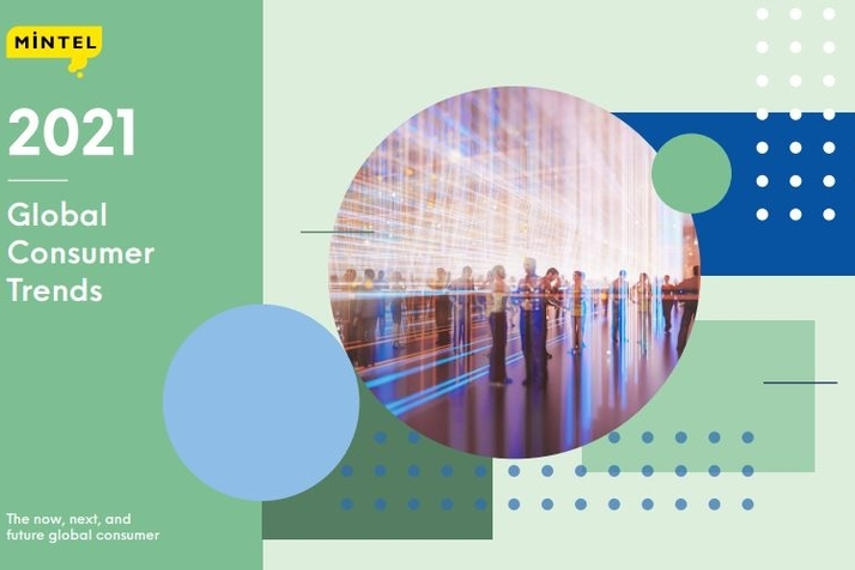As experts in what consumers want and why, Mintel is uniquely suited to predict the future of consumer behaviour and what that means for brands. Our new 2021 forecasts remain embedded within our system of Mintel’s 7 Trend Drivers and their supporting pillars. They also take into account the changes that have been accelerated by the COVID-19 pandemic—the subtle yet profound shifts in consumer thinking and responses from brands—and attempt to encapsulate the better future that consumers, globally, aspire to, and towards which brands can build their own strategic visions.
Health undefined
Consumers are in search of a wellbeing experience through an entirely new lens built around a sense of uncertainty as to when life will shift to more balanced routines. This is driving demand for comfort and structure.
As brands aim to set a new tone and new structures, the opportunity for brands exists in not simply selling a wellbeing product or service to consumers, but also reminding them of the value in their own internal curiosity and the power of trying something new.
Following the launch of ‘Turmeric Milk’ by Mother Dairy, many leading food and beverage brands have also introduced immunity-boosting versions of their products for concerned consumers. In fact, Mintel’s research highlighted that just over half of the Indian consumers want to have improved fitness, while 37% want to be healthier to avoid/reduce my healthcare costs.
Collective empowerment
The collective mentality of the pandemic motivated a community-focused consumer mindset – even in traditionally individualistic cultures – that has put mutual support and advocacy at the forefront of various consumer behaviours. The rise of the Black Lives Matter movement and the Global Climate Strike show how people are gathering to clamour for positive change. Mintel research highlights that, driven by ambition for better lives, almost three in four Indians want a better work-life balance.
There is an opportunity for brands to take a lead in addressing these issues, and they may risk being seen as a hindrance if they fail to do so.
Priority shift
As consumers are either facing economic uncertainty and/or a mix of contradictory feelings of vulnerability and resilience, they are taking a step back and embracing a scarcity mindset that makes them monitor more closely their spending and avoid excess consumption. In this search for things that matter to them, consumers are seeking not just affordability and convenience, but also safety, protection, and durability of goods.
Mintel research highlights that Indians are likely to seek brands that are perceived as helping households save on necessary big-ticket costs, such as education (30%) and future medical costs (51%). Brands should take advantage of this opportunity to become agents of positive change and to prove that they offer good value and tangible results.
Coming together
COVID-19 revitalised the concept of community, with consumers craving human connection and interactions more than ever. Mintel research highlights that three in five Indians want more quality time with friends/family. With large numbers of the world's population forced to stay indoors and observe social distancing measures, this highlighted the importance of unity as a means of supporting one another.
A widespread understanding that community and belonging are critical to combat loneliness offers brands the chance to celebrate consumer identities and offer novel ways to support each other. For example, Estée Lauder tapped into its employee 'influencers' to push the power of local language content in India.
Virtual lives
The impact of the pandemic and continued innovation in technology has meant that experiences continue to change and the role digital entertainment plays in fostering positivity and connecting people is of particular importance.
The fast-growing popularity of gaming and esports offers opportunities for brands from multiple markets, either via collaborations to create collectible in-game items, by creating their own games, or pairing products to go with gaming sessions.
Sustainable spaces
With access to more information than ever before, consumers are demanding greater transparency from the brands they buy from, including how brands plan to tackle sustainability challenges. For example, multiplex chain INOX has announced it is repurposing movie theatres into wedding halls
As consumers increasingly appreciate the complexity of the issues the world faces, brands have an opportunity to proactively innovate products and services that help them deal with the cumulative impact of everyday living—from a focus on localism and supporting communities to nudging consumers towards incrementally better habits that combine to great effect.
Digital dilemmas
Technology has played a massive role in offering solutions that provide peace of mind in uncertain times. While technology is meant to improve life, it is worth taking a step back to assess how consumers feel about the technology with which they surround themselves.
Mintel’s report on Digital Trends highlights, Indians aged 18-34 lead the uptake of digital wallets (20%, vs 15% aged 35-44) and ordering food online (28% vs 23% aged 35-44).
eCommerce and online transactions have the potential to become, and remain, the norm. Thus brands are encouraged to innovate digital capabilities in anticipation of consumers' needs and, crucially, to expertly bridge the gap between the online and offline worlds to offer a more reliable and consistent experience.
Interviews with the Mintel Trends global analyst team are available on request from the Mintel Press Office. Mintel’s 2021 Global Consumer Trends are available for free download here.
Learn more about our 2021 Global Food and Drink Trends here and our Global Household Care Trends here; for interview inquiries, please contact the Press Office.

